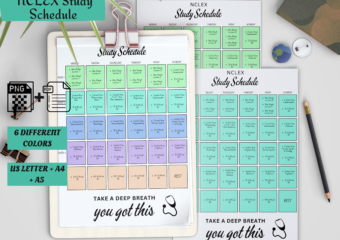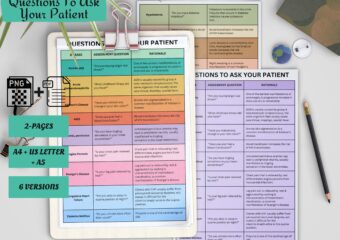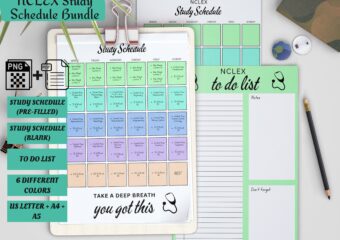Can You Take the NCLEX at Home?

- How to Write Effective Therapy Progress Notes - January 7, 2025
- How to create SMART Goals in Therapy - October 8, 2024
- MICU vs SICU: What is the difference? - March 25, 2024
As burgeoning healthcare professionals, nurses face several challenges on their journey. Among these is the daunting task of passing the National Council Licensure Examination, or NCLEX. A standardized examination, the NCLEX is a crucial component in the journey of becoming a licensed nurse in the United States. It ensures that the candidate has the necessary knowledge and skills to carry out their duties effectively and safely. In the wake of the COVID-19 pandemic and the rising trend of remote work and education, one question often arises: Can you take the NCLEX at home?
Can You Take the NCLEX at Home?
To address this question succinctly: the NCLEX must be taken in person at an approved testing center. The National Council of State Boards of Nursing (NCSBN), the body that develops and administers the exam, maintains this requirement to ensure the integrity of the examination process.
The rationale behind in-person testing lies primarily in the high-stakes nature of the NCLEX. This exam holds the key to a nurse’s licensure and, consequently, their career. To ensure a standardized testing environment and to prevent any form of dishonesty or fraud, proctored in-person testing has been the traditional method.
However, as with everything else in our rapidly changing world, the NCLEX examination process has not remained untouched. The NCSBN has shown a willingness to adapt to new situations, such as when they temporarily modified the NCLEX testing format in response to the COVID-19 pandemic.
In March 2020, in the wake of the pandemic, certain changes were implemented to the NCLEX. Modifications included a reduction in the minimum number of questions from 75 to 60 and an adjustment of the maximum testing time. Also, social distancing protocols were adopted at testing centers to ensure the safety of all candidates.
Despite these modifications, as of the latest updates, the fundamental requirement for in-person testing remains. While remote proctoring has become more common in various testing scenarios, the NCLEX has yet to adopt this approach. This is largely due to concerns around maintaining the integrity and security of the exam.
While we embrace the digital era with open arms, some processes maintain their traditional form due to their specific nature and requirements. As of now, aspiring nurses need to be prepared to take the NCLEX at an approved testing center. Still, it’s worth staying informed about any potential changes from the NCSBN. Keep an eye on their official updates and ensure you’re prepared to adapt and succeed, no matter where your nursing journey takes you.
What Prevents You From Taking the NCLEX at Home?
The fundamental reason behind the requirement to take the NCLEX (National Council Licensure Examination) at an approved testing center rather than at home stems from a need to maintain the integrity and security of the examination process. Here are the main reasons in more detail:
- Standardization: Standardized testing environments ensure that all test-takers have the same testing conditions. This levels the playing field and avoids giving advantages to some candidates over others due to varying home environments. Some candidates might have quiet, private spaces to take tests, while others might not have such amenities.
- Security: The NCLEX is a high-stakes exam that grants the licensure necessary for a nursing career. Ensuring the security of the exam is paramount to prevent cheating or dishonesty. At home, it would be challenging to control the use of unauthorized resources during the test.
- Proctoring: In-person proctoring allows for real-time monitoring of test-takers, ensuring they comply with the test rules. Although online proctoring technologies have evolved, they may not guarantee the same level of supervision as in-person proctoring.
- Technical Concerns: Taking the test at home would mean relying on personal technology and internet connections, which can be unreliable. Issues such as power outages, unstable internet connections, or computer crashes could compromise the fairness of the exam process.
- Validity: To maintain the validity and reliability of the NCLEX, it’s critical that the exam is administered in a controlled, standardized manner. This ensures that scores accurately reflect a candidate’s competency and readiness to practice nursing safely and effectively.

How to Be Successful on the NCLEX
Success on the NCLEX (National Council Licensure Examination) requires a combination of thorough preparation, effective study strategies, and a clear understanding of the exam format. Here’s a brief guide on how to be successful:
- Understand the Format: The NCLEX uses a computer adaptive testing (CAT) format, meaning the difficulty of questions adjusts based on your previous answers. Familiarize yourself with this unique format.
- Study Smart: Prioritize understanding over rote memorization. Focus on areas where you’re weak and use high-quality resources like NCLEX review books and practice question databases.
- Practice Questions: Regularly taking NCLEX-style practice questions will enhance your test-taking skills, improve your timing, and build your confidence.
- Take Care of Yourself: Ensure you’re getting enough sleep, eating healthy, and taking breaks during your study sessions. Your physical and mental health are key components of your test-taking readiness.
- Plan Your Test Day: Know the testing procedures, rules, and what to expect at the testing center. Being prepared will reduce your stress on the day of the exam.
- Believe in Yourself: Confidence plays a crucial role in exam performance. Believe in your ability to succeed and approach the NCLEX with a positive mindset.
Remember, the NCLEX is not just about testing your knowledge, but also your critical thinking and decision-making skills in providing safe, effective nursing care. Good luck!




